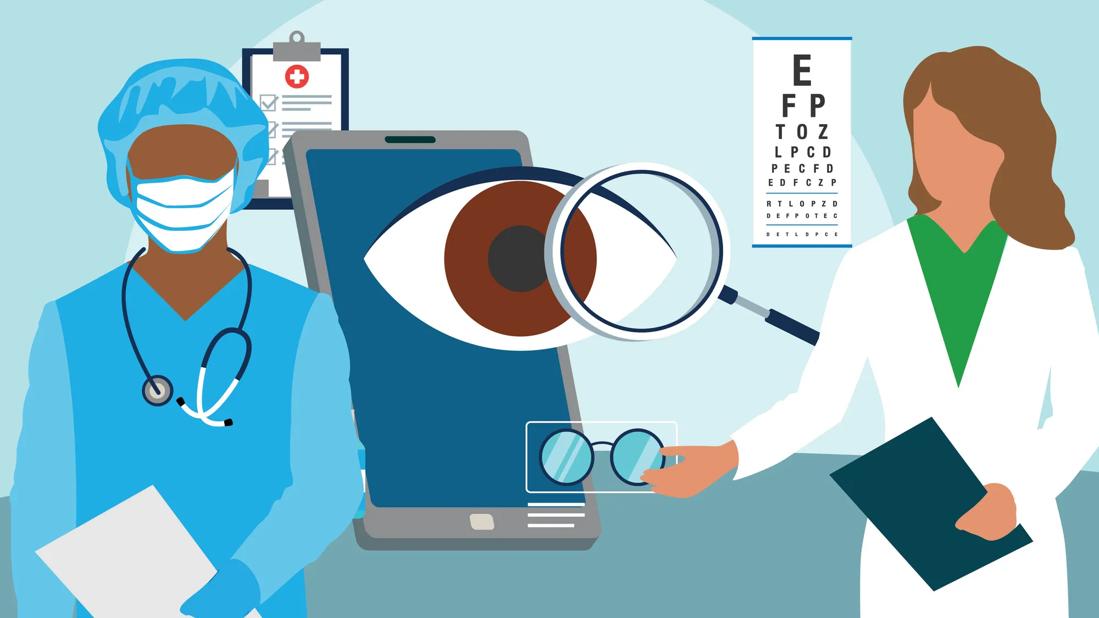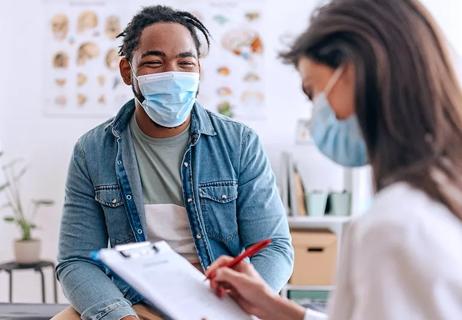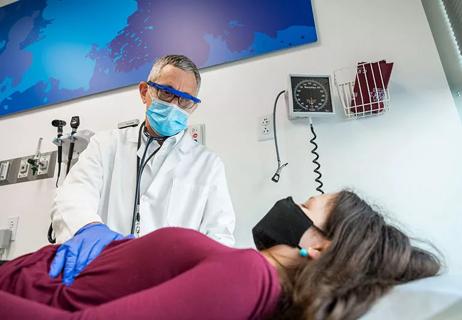The differences are few, but ophthalmologists can perform eye surgeries and more complex procedures

Your eyes have been bugging you. You’re wondering whether you should see an ophthalmologist or an optometrist. But treating common conditions, like dry eyes, is much different from treating more complex conditions, like removing cataracts.
Advertisement
Cleveland Clinic is a non-profit academic medical center. Advertising on our site helps support our mission. We do not endorse non-Cleveland Clinic products or services. Policy
Ophthalmologist Scott Wagenberg, MD, breaks down the difference between
ophthalmologists and optometrists and what each can help with in terms of medical treatment.
The differences between these eye specialists vary based on their level of expertise and the kinds of treatments and services they’re allowed to provide.
Optometrists provide routine, regular care related to eye health and vision. But ophthalmologists are more qualified. As a result, they can diagnose and treat a wider range of more complex conditions, like severe glaucoma or diabetes-related retinopathy.
Ophthalmology is a branch of medicine that focuses on the diagnosis and treatment of eye disorders. To become an ophthalmologist, you need to meet these criteria:
Advertisement
Optometry involves the physical examination of the eye to diagnose and treat issues that affect your eye health and vision. Optometrists must meet the following criteria:
Opticians work with ophthalmologists and optometrists to help you select and fit your prescription eyewear. Opticians help you choose the right glasses or contacts, including frames, lenses and coatings.
Opticians work directly from orders written by ophthalmologists or optometrists. They don’t give eye exams or write prescriptions themselves. “They don’t diagnose or treat eye problems at all,” says Dr. Wagenberg.
When you’re dealing with symptoms or immediate issues like blurry vision, eye pain or “floaters,” you can make an appointment with either an ophthalmologist or an optometrist. Any good eye doctor will help point you in the right direction if you need to see a different specialist.
“An optometrist will refer you to an ophthalmologist for any difficult medical conditions, like uncontrolled eye infections, medically unmanageable glaucoma, cataract surgery, corneal transplants or retinal problems,” says Dr. Wagenberg.
If you’re considering laser eye surgery (like LASIK), an ophthalmologist is your point of contact. But an optometrist is often a better fit for someone who needs contacts.
The best thing you can do for your eyes is get regular exams and protect your vision. In most cases, you should have an eye exam at least once a year, especially if you’re at higher risk of vision loss or diabetes or have a family history of eye disease.
Just remember that an optometrist is a good starting point for many. An ophthalmologist is often the next person you see when you need more refined treatments.
Advertisement

Sign up for our Health Essentials emails for expert guidance on nutrition, fitness, sleep, skin care and more.
Learn more about our editorial process.
Advertisement

You don’t have to wait until you have symptoms of heart disease to seek cardiology care

Having a PCP means knowing where to go for a range of concerns — that’s a good thing for your lifelong health

Anyone can call themselves a nutritionist, but dietitians have specialized training

The best way to figure out which kind you need is to first speak with your primary care provider

They practice medicine similarly, but DOs have a focus on the mind, body, spirit connection

The short answer from a primary care specialist

The Short Answer from one of our experts

Your first point of health contact

Even small moments of time outdoors can help reduce stress, boost mood and restore a sense of calm

A correct prescription helps your eyes see clearly — but as natural changes occur, you may need stronger or different eyeglasses

Both are medical emergencies, but they are very distinct events with different causes